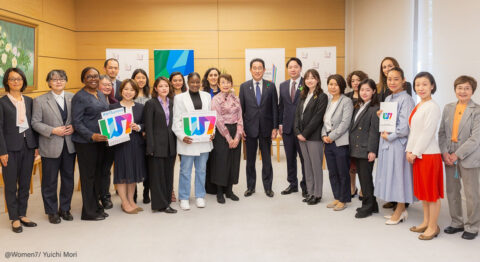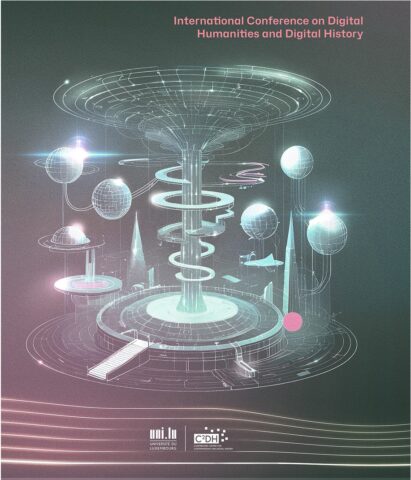イベント&アクティビティ
Hybrid Study Group discusses Japanese career women’s identity conflict

This presentation explores how career-minded Japanese women experience and respond to identity conflict. Based on 125 in-depth interviews with Japanese women who face incompatible expectations for their roles in their professional and private lives, it shows how this dilemma leads to an identity conflict to which the women react with different identity work strategies: Individuals may either sacrifice their career ambitions or forego starting a family; alternatively, they might attempt to reconcile professional and personal role expectations by relinquishing perfectionism in both spheres, or seek partners whose personal expectations align more closely with their career objectives. While these strategies may resolve incompatible external role expectations, this study reveals that they do not effectively diminish internalized dilemmas. Possible solutions to resolve the dilemma will be discussed. Details and registration here
Harald Kümmerle speaker at Oxford’s Free and Open Indo-Pacific conference

DIJ researcher Harald Kümmerle will present his paper on “‘Data Free Flow with Trust’ as a pillar of economic security in the digital realm” at the conference The Free and Open Indo-Pacific: Japan’s Strategic Vision Goes Global at Oxford University on March 11. Harald’s paper will highlight Japan’s initiative Data Free Flow with Trust (DFFT) as an important aspect of the development of economic security in the digital realm. He will discuss DFFT as a promising regulatory framework for the cross-border flow of non-personal data. One focus of his talk will lie on the data regulation and economic security discourse involving a variety of actors and positions that followed a scandal concerning the access of private data of Japanese social media users by a Chinese subcontractor firm. The two-day conference exploring the Indo-Pacific’s role in global politics is hosted by Oxford University’s Nissan Institute of Japanese Studies. Details here
Hybrid Study Group on AI and Jesuit Written Artefacts

Between 1595 and 1610, the first recorded contacts between Europeans and Japanese took place. In the Jesuit Colleges in Kyushu, lectures were delivered on Aristotelian philosophy, theology, and Ptolemaic cosmology. In Germany, almost 450 years later in 2019, this tripartite work on science and religion is discovered in the Herzog August Bibliothek Wolfenbüttel: the first complete Japanese translation of the so-called Compendia compiled in Japan. Bridging the gap between computer science and historical linguistics, this talk will present a novel approach of understanding this written artefact by applying the possibilities artificial intelligence offers. It will address the challenges of finetuning AI-powered tools to historical Japanese, training AI models for text recognition in multiple text directions and writing systems, coding scripts tailored to historical romanization, and conducting quantitative analysis of a comparative text corpus of Jesuit codices. Details and registration here
Hybrid Study Group on Feminist Foreign Policy in Japan

In recent years, feminist foreign policy (FFP) has become a buzzword in foreign policy. Since 2015, the Japanese government has been trying to push for more gender equality in its foreign policy and adopted a National Action Plan on Women, Peace and Security. In 2023, the Kishida cabinet appointed the second woman in Japan’s history as foreign minister and Japan’s latest National Action Plan includes even more gender-sensitive norms. At the same time, Japan is under intense scrutiny for consistently ranking last among G7 countries on gender equality and women’s empowerment. This clashes sharply with Japan’s international image as an ethically “good state”. Against this background, this lecture examines how Japan attempts to catch up with the international trend of FFP and the promotion of pro-gender norms in its foreign policy. Details and registration here
DIJ researchers at conference on Digital Humanities and Digital History
 DIJ researchers Harald Kümmerle and Nicole M. Mueller will participate in the international conference Exploring Epistemic Virtues and Vices: Data, Infrastructures, and Episteme between Collaboration and Exploitation in Luxembourg from March 14 to 16. Harald will deliver the keynote speech on “Epistemological challenges of doing research in/on Japan in the age of Digital Humanities”. Nicole will give her paper discussing “Epistemic Potentials and Pitfalls of Scalability” in the panel on Epistemic Virtues and Vices of Digital Research Practices. The conference is organized by the Luxembourg Centre for Contemporary and Digital History (C²DH) in collaboration with the German Historical Institute Washington, the Roy Rosenzweig Center for History and New Media, and the DIJ. Details here
DIJ researchers Harald Kümmerle and Nicole M. Mueller will participate in the international conference Exploring Epistemic Virtues and Vices: Data, Infrastructures, and Episteme between Collaboration and Exploitation in Luxembourg from March 14 to 16. Harald will deliver the keynote speech on “Epistemological challenges of doing research in/on Japan in the age of Digital Humanities”. Nicole will give her paper discussing “Epistemic Potentials and Pitfalls of Scalability” in the panel on Epistemic Virtues and Vices of Digital Research Practices. The conference is organized by the Luxembourg Centre for Contemporary and Digital History (C²DH) in collaboration with the German Historical Institute Washington, the Roy Rosenzweig Center for History and New Media, and the DIJ. Details here
Workshop explores relationship in human-machine interaction

When humans and machines interact, do they form (real) relationships? At the workshop Relationship in Human-Machine Interaction, six keynote speakers will share insights on the relationship-building aspects of humans and robots, avatars, or devices. Their talks will cover social psychology, media studies, computer science, and engineering viewpoints, including a presentation by DIJ researcher Celia Spoden on avatar robots as alter ego for hospitalized students. The talks and discussions are followed by the interactive workshop “Detour: Brand characters, tonalities, and emotions”. The event highlights the potential of technology to support communication, ease loneliness and decrease isolation, and enable new ways to organize work and life. All participants are invited to join the discussions and share their perspectives. The workshop is organised by the German Research Foundation (DFG) and the German Centre for Research and Innovation Tokyo (DWIH Tokyo). It is co-supported by the DIJ. Details and registration here
Barbara Holthus panelist at pet industry conference
 As part of her research on the sociology of pets in contemporary Japan, DIJ deputy director Barbara Holthus will participate in a panel discussion on the challenges resulting from the cohabitation of humans and pets in Japan’s super-aged society. The panel is part of an event organised by the Japan Animalpic Committee, an association that promotes the well-being of and interactions between humans and animals. Other panelists include former Minister of State Katayama Satsuki, pet activists Katsumata Kazuyoshi (Japan Animalpic Committee), Ito Hiroshi (Medical Ark School), Hosoda Nobuyuki (Japan Animalpic Committee), and dog trainer Ito Tetsuro. The event takes place on February 13 in Tokyo’s Office Building of the House of Representatives. Details and registration here (in Japanese)
As part of her research on the sociology of pets in contemporary Japan, DIJ deputy director Barbara Holthus will participate in a panel discussion on the challenges resulting from the cohabitation of humans and pets in Japan’s super-aged society. The panel is part of an event organised by the Japan Animalpic Committee, an association that promotes the well-being of and interactions between humans and animals. Other panelists include former Minister of State Katayama Satsuki, pet activists Katsumata Kazuyoshi (Japan Animalpic Committee), Ito Hiroshi (Medical Ark School), Hosoda Nobuyuki (Japan Animalpic Committee), and dog trainer Ito Tetsuro. The event takes place on February 13 in Tokyo’s Office Building of the House of Representatives. Details and registration here (in Japanese)
Online Study Group on Japanese Female Doctors in the Meiji Era

This online presentation offers a novel perspective on the historical study of education in Japan by focusing on Japanese female medical students in Germany. It will examine the educational experience of two pioneer females, Dr. Urata Tada (1873-1936) and Dr. Fukui Shigeko (1874-1961) who received their MD degrees from Marburg University. Upon returning to Japan, Urata became dean of Dōjin Hospital in Tianjin, China, and Fukui worked as an obstetrician and gynecologist at the Osaka Ogata Hospital. Urata and Fukui achieved a breakthrough in the status of female doctors in the Japanese medical profession. This presentation will argue for their roles in facilitating the dissemination of knowledge during Japan’s modernization in medical areas. Importantly, it offers insights into the reform of Japanese female higher education in modern Japan. Details and registration here
Wen-Wei Lan, Ludwig-Maximilians-Universität (LMU Munich)

















 Open Access
Open Access
